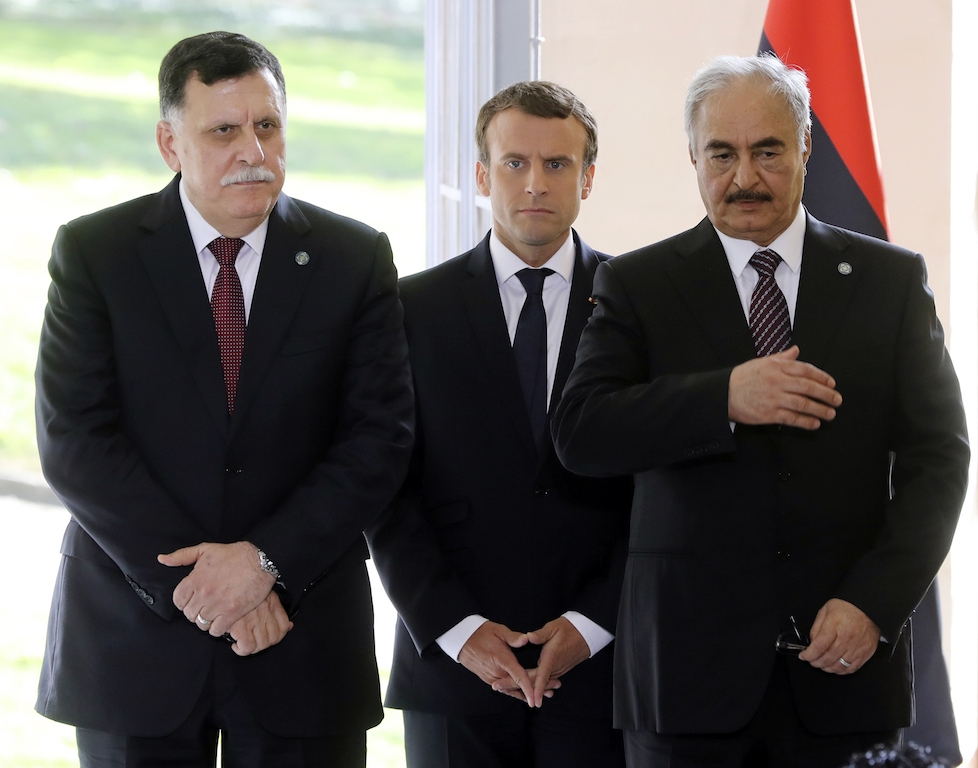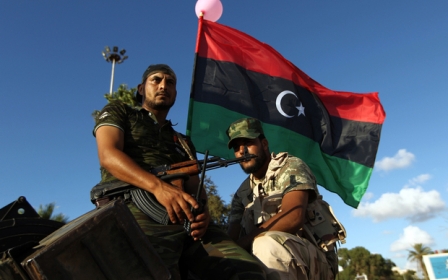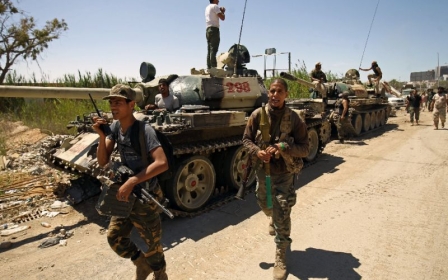Libyan rivals voice joint support for ceasefire, elections

The two main rivals in conflict-ridden Libya made a joint commitment Tuesday to calling a ceasefire and holding elections that French President Emmanuel Macron said would take place in spring 2018.
Macron said Libya's UN-backed prime minister, Fayez al-Sarraj, and Khalifa Haftar, the military commander based in the remote east of the vast country, had shown "historic courage" in talks outside Paris.
Sarraj and Haftar "struck an agreement to hold elections next spring", Macron said after hosting the meeting.
A 10-point statement backed by the two leaders said: "We commit to a ceasefire and to refrain from any use of armed force for any purpose that does not strictly constitute counter-terrorism."
It also says the two sides are committed to "building the rule of law" in a country where dozens of armed groups have proliferated in the power vacuum created by the toppling of longtime dictator Muammar Gaddafi in 2011.
The French initiative has angered officials in Italy, which has previously taken the lead in efforts to bring peace to its former North African colony and borne the brunt of successive waves of African migrants that have crossed the Mediterranean from Libya.
Human traffickers have exploited the chaos to boost their lucrative but deadly trade, and Libya has this year become the main springboard for migrants seeking to reach Europe in often flimsy and overloaded boats.
Since January, more than 100,000 migrants have made the perilous voyage from Libya, with 85,000 arriving on the shores of Italy, according to the International Organisation for Migration (IOM).
About 2,360 people have drowned this year attempting to make the journey, the IOM says.
France's foreign minister, Jean-Yves Le Drian, told Le Monde newspaper in June that Libya was "a priority" for Macron and said there was "a security risk because of the trafficking of all kinds, including humans" from Libya.
Le Drian has embarked on a regional tour to drum up support for an end to the Libyan crisis, appealing in particular to Egypt and the United Arab Emirates for assistance.
New MEE newsletter: Jerusalem Dispatch
Sign up to get the latest insights and analysis on Israel-Palestine, alongside Turkey Unpacked and other MEE newsletters
Middle East Eye delivers independent and unrivalled coverage and analysis of the Middle East, North Africa and beyond. To learn more about republishing this content and the associated fees, please fill out this form. More about MEE can be found here.




